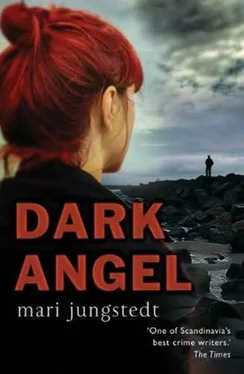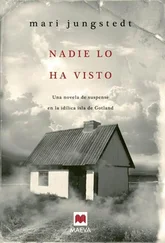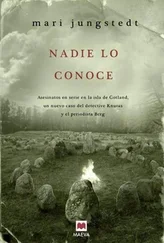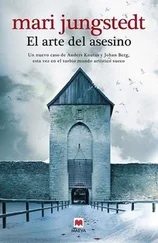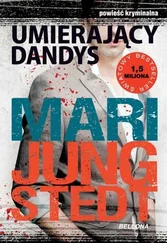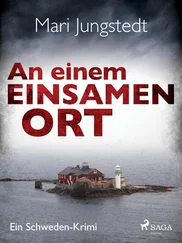This morning I took a shower and washed my hair, which was quite a feat, considering my condition. It takes an enormous effort for me to slip out of my sleep-warmed pyjamas and get into the shower. It never gets any easier. Yes, I wear pyjamas to bed, just as I did as a child. They’re my armour: against fear, evil spirits, and any malicious, sinister creature that might happen to enter my bedroom. Sometimes I lie there in the dark imagining that someone is inside the flat. There are plenty of nooks and cupboards and wardrobes to hide in. I live in the only occupied flat in the entire building. The rest are all offices. No, that’s wrong. There is one other residential flat on the same floor. But it belongs to a family who live abroad, somewhere in Saudi Arabia, I think. I don’t know when they’re coming back.
That’s why the building is so quiet at night. Very quiet. Outside these walls, it’s a whole different matter. That’s where life in the city goes on.
I’ve had my coffee and forced myself to eat two open cheese sandwiches on rye bread. Energy is required if I’m to manage the walk I have ahead of me. I always read while I eat. Right now I’m reading The Red Room by August Strindberg. It’s a book that I spent a brief period reading aloud for Pappa when he wanted to rest on Saturday afternoons. I remember that once my nose started to bleed. It left a red spot in the book that’s still visible today.
A few days ago when I got out this book, which had been packed away for so long, a photograph fell from between the pages where it had been lying, forgotten. It was a picture of Pappa, taken in the boat out at the lake. He’s wearing shorts and a light blue shirt, smiling slyly at the camera. Wrinkling his nose at the sun the way he always used to do. I don’t think I’ve ever seen a picture of Pappa in which he’s really happy. He might make a face or smile, but he never laughed when anyone took his picture.
Mamma and Pappa divorced when I was five, and after that they seldom saw each other. The day before my thirteenth birthday, he died in a car accident. My memories of him are few and fragmentary, but occasionally images appear in my mind’s eye. The dark hair on the back of Pappa’s neck as he drove; the way he would floor the accelerator on that bumpy hill out in the country so that the three of us kids sitting in the back seat would screech with delight. His inimitable way of chewing on a bun, making it look so heavenly; the way he inhaled through his nose; his dry hands; and the way he tossed back his head when he laughed. He had a big round belly and the indentation of his navel was clearly visible under his shirt. Pappa smelled so nicely of aftershave. The bottle of Paco Rabanne stood on his shelf in the medicine cabinet.
During one summer holiday in Norrland, I remember playing in a deep, dark lake in the woods. Pappa was romping with us, chasing us about in the water. I laughed so hard that I nearly choked when he grabbed me and I landed in his big, soft embrace.
Pappa worked on the mainland and came home only at the weekends. I remember how Mamma would always hum as she cleaned up the flat before he arrived. She would set the table with the good china and candles, take out a bottle of wine, and cook steak with French fries and Béarnaise sauce. When he finally turned up on Friday evening, my siblings and I would stand in the hall, our eyes sparkling, as if the king himself was coming to visit.
I never heard any explanation for why they split up. Only that something had happened that Mamma couldn’t forgive. She was the one who wanted the divorce. Even so, she was inconsolable afterwards, and everyone in her circle of friends was fully occupied trying to take care of her. The poor woman, left on her own with three small children. And so young. Without money in the bank or any sort of education.
The grey days became weeks, months, years. No one had time for the feelings of loss that my siblings and I were trying to deal with. We ended up in the shadows. And that’s how things were to remain.
Actually, I’ve been in the shadows ever since I was born. Like someone who really has no right to live. I wonder why I was born at all.
Mamma never wanted me. She told me that herself.
She has always said that she thinks it was a miracle I could be such a happy child when she was in such despair while she was pregnant with me. At first she was utterly beside herself when she found out she was going to have another baby. Then she wept every day as I grew inside of her. Apparently it was hard to tell that she was even carrying a child until close to the end. That was how strongly she tried to deny me.
I must have been about fourteen when I heard the story for the first time. She related the tale as if it were a funny anecdote. I don’t remember having any particular reaction; I didn’t feel angry or upset. I assume my response was the usual one. Acceptance. I simply accepted the insult – hook, line and sinker. Just as I put up with everything she said about me, no matter how denigrating her words. I can hear her voice echoing inside my head.
‘And just imagine – even though I was so upset about having you, you were incredibly happy when you came out! Right from the very beginning!’
Sure, Mamma. Imagine that. And why exactly are you telling me how unwanted I was? I have no bloody idea.
I’m dressed now. I have to go out of the door, take the lift downstairs, and mingle with all the people out on the street. I take a breath. A deep breath.
LINA PHONED JUST as Knutas was heading down the corridor to the investigative team’s morning meeting. He’d left home very early, before she was awake. Knutas’s Danish wife was on her way to her job as a midwife at Visby Hospital. She’d started taking a walk every morning before breakfast. It was another of her countless attempts to lose weight. Knutas didn’t think there was anything wrong with his wife’s plump figure, but she was always trying to get rid of a few extra pounds. At the moment she had high hopes for the diet based on the glycaemic index, which was the current fad. Consequently, whenever it was her turn to do the cooking, their meals consisted of meat, fish and salads. Potatoes, pasta and rice had been replaced by lentils and beans, although Knutas and the children weren’t happy about the substitution. Because of their protests, she had relented enough to serve whole-grain pasta.
‘Good morning,’ Lina gasped on the phone, sounding out of breath. ‘How’s it going?’
‘OK, but we’re really busy. We’ve got a meeting in a few minutes.’
‘I just had to phone you because Nils is sick.’
Knutas stopped in his tracks.
‘What’s the matter with him?’
‘This morning it was almost impossible to wake him. He said that he’d hardly slept at all and that his stomach hurt.’
‘Hurt in what way?’
‘He says it aches but he hasn’t thrown up, and he doesn’t have a fever. At any rate, I let him stay home from school.’
‘That’s good. I’ve got a lot on my plate today, but I might be able to drop by to see him later on.’
Lina’s work schedule was not as flexible as his since she was assigned specific shifts at the hospital.
‘That would be great. I know you have to go, so we’ll talk later.’
‘I’ll phone Nils.’
‘No, don’t do that. He went back to sleep.’
‘OK. Love you.’
‘Love you too.’
Worry instantly settled over Knutas. Nils hadn’t been himself lately, and maybe it wasn’t all due to puberty.
Still thinking about his son, he went into the conference room for the first meeting of the day with the investigative team.
Chief Prosecutor Birger Smittenberg was already in his place at the table, intently leafing through the morning newspaper. He glanced up at Knutas and gave him a distracted greeting. Wittberg and Jacobsson were sitting next to each other, leaning close and conversing in low voices. The police spokesman, Lars Norrby, was missing. He’d taken a two-month leave of absence to sail around the West Indies with his children. While Lars was away, Knutas had to handle the press himself, which he didn’t really mind. Things were actually calmer this way. He and Norrby didn’t always agree about what information should be made public.
Читать дальше
